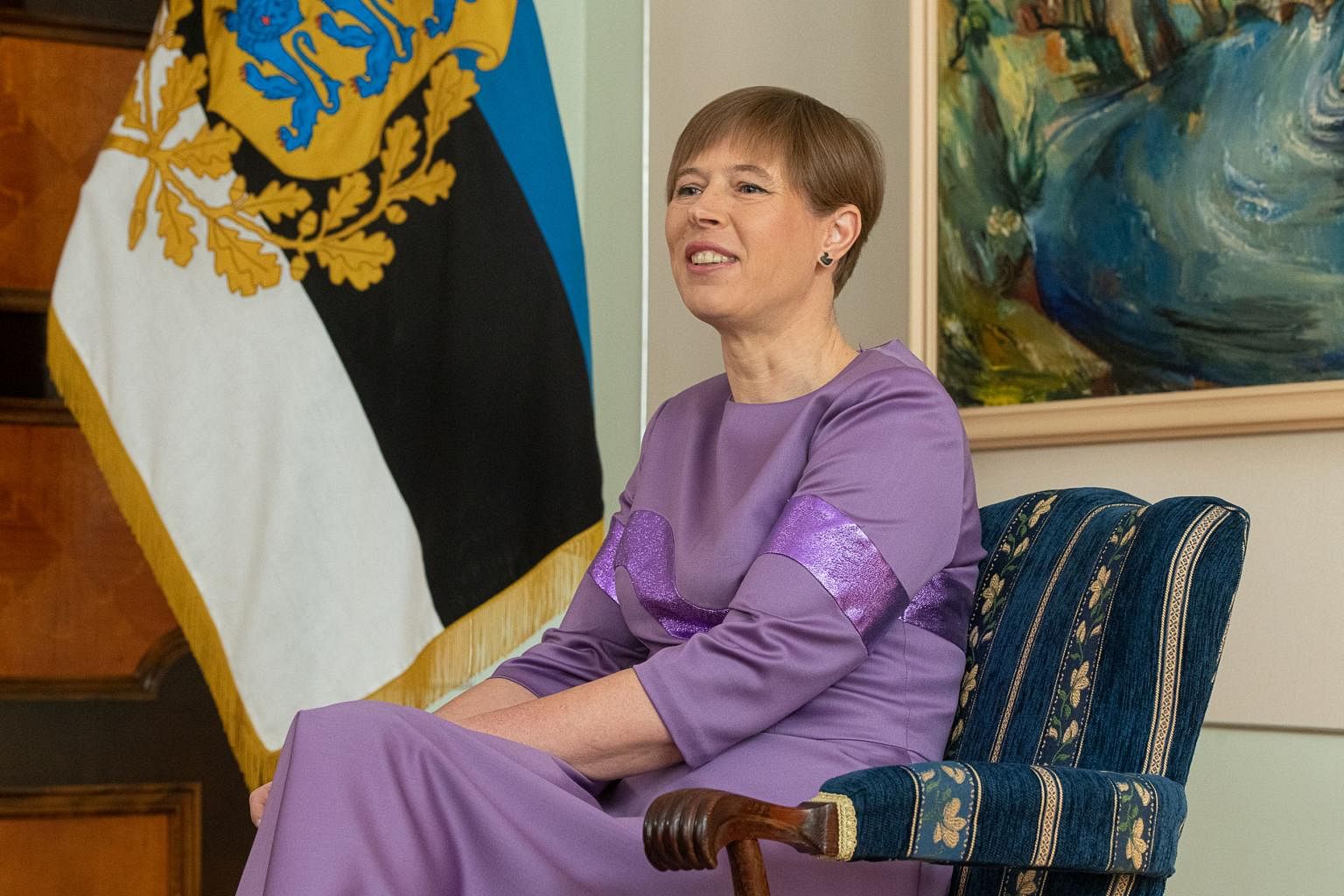S'pore, Estonia to explore use of Covid-19 vaccine e-certs to spur travel
Sign up now: Get ST's newsletters delivered to your inbox

The EU's Digital Covid certificate came into force on July 1 with all 27 EU nations on board. It aims to allow Europeans to travel easily between member states.
PHOTO: AFP
SINGAPORE - Cross-border recognition of vaccination e-certificates is one of many possibilities that Singapore and Estonia are looking into as the two nations strengthen bilateral ties and cooperate digitally to recover from the Covid-19 pandemic.
In an exclusive interview with The Straits Times, Estonia's President Kersti Kaljulaid said: "Estonian vaccination certificates plug into European Union vaccination certificates. So if Singapore so wants to plug in into this system, it is great."
The system, known as EU's Digital Covid certificate, came into force on July 1 with all 27 EU nations on board. It aims to allow Europeans to travel easily between member states. Some non-EU countries including Iceland, Norway and Switzerland are also on board.
Tamper-proof digital certificates can effectively thwart scams involving fake paper documents, and are part of efforts to reopen borders without quarantines.
At the airport, travellers show a digital certificate in the form of a QR code containing data on one's vaccination status, test results or recovery status from Covid-19. Airline and immigration officials scan the QR code to check the authenticity of the record.
Singapore has a similar system called HealthCerts, which allows Ministry of Health-endorsed digital certificates to be recognised at local and overseas airports.
At the virtual interview on Tuesday (July 13), the last day of her three-day working visit to Singapore, Ms Kaljulaid also talked about how joint cyber-defence exercises between Singapore and the Baltic state can be enhanced.
"It's not enough if your ministries of defence know how to protect themselves. You also need private-sector companies to be able to protect themselves and fight back," she said.
Ms Kaljulaid, 51, is known for championing the digitalisation of governments.
She is the fifth president of Estonia and was the youngest president at the time of her election in 2016.
In 1992, she graduated from the University of Tartu as a biologist. In 2001, she obtained an MBA at the same university.
She started her career in 1996 as a sales manager in state-owned telecoms firm Eesti Telefon, before joining Estonian bank Eesti Hoiupank, now known as Hansapank, as a project manager.

From 1999 to 2002, Ms Kaljulaid championed a paperless government when she was an economic adviser to then Estonian Prime Minister Mart Laar.
"When I joined the Prime Minister's office in 1999, I was like: 'In the private sector, we already have Internet systems. Why on earth are we carrying papers around?'" she said. "The government was somehow kind of backward compared to the private sector."
Cyber security is another area digital-savvy Estonia has championed since it was hit by a major cyber attack, believed to be linked to Russia, in 2007. The attack disrupted e-government and e-banking services in the state for weeks.
At the virtual interview, she named a few Estonian firms which could play a key role in the cross-border exercises between Singapore and Estonia. They include:
- CybExer Technologies, which has developed internationally-recognised cyber range tools, a platform that provides hands-on cyber-security practice, to prepare individuals to deal with different forms of cyber threats.
- Guardtime Estonia, a cyber-security firm which uses blockchain technologies to preserve the confidentiality of data.
The new possibilities build on more than two years of collaboration between the two nations.
She said: "Since 2018, we have a cyber security memorandum of understanding and we exercise together. Estonia is the home of the world's biggest cyber range."
Specifically, Estonian firms Guardtime and GT Cyber Technologies are behind the development of an automated command platform for the Nato Cyber Range, which facilitates the largest international joint cyber-security exercises for experts from Estonia and its allies and partners. The training aims to provide better preparedness against cyber-attacks.
Estonia, which borders the Baltic Sea and Gulf of Finland, broke away from the Soviet Union and regained its independence in 1991. It jumped right into digital transformation, taking advantage of the advent of the Internet at that time.
What ensued was the launch of an electronic tax-filing system in 2000. Then, in 2002, a mandatory e-ID system started providing citizens with safe online access to all e-government services as well as commercial services such as e-banking and utility bill payments. The e-ID system also allows for the secure digital signing of confidential banking and legal documents.
With a population of just over 1.3 million people, the small nation has a gross domestic product per capita of US$23,312 (S$31,600), close to two-fifths of Singapore's.
Ms Kaljulaid also participated in the inaugural Asia Tech x Singapore Summit organised by the Infocomm Media Development Authority on a panel on building trust and cooperation in the data economy.
The summit gathers delegates from governments, international enterprises and communities to discuss trends, challenges and opportunities in technology, society and the digital economy.


